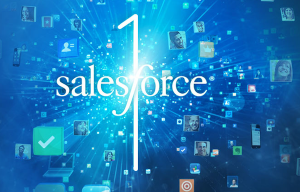[Bob Marsh is the Founder & CEO of LevelEleven]
 When interviewing new hire candidates, talking to VC’s, fellow entrepreneurs, and sometimes even clients, people ask me, “When are you going to open up beyond Salesforce.com?” My answer is generally pretty straight forward – as soon as I know it will help us grow faster. After less than 2-years in business, consistent 300%+ annual growth, and already securing 150+ customers including Comcast, Forrester Research, Tapjoy, HootSuite, Dun & Bradstreet, Akamai, and MicroStrategy, there aren’t any signs that growth isn’t fast enough.
When interviewing new hire candidates, talking to VC’s, fellow entrepreneurs, and sometimes even clients, people ask me, “When are you going to open up beyond Salesforce.com?” My answer is generally pretty straight forward – as soon as I know it will help us grow faster. After less than 2-years in business, consistent 300%+ annual growth, and already securing 150+ customers including Comcast, Forrester Research, Tapjoy, HootSuite, Dun & Bradstreet, Akamai, and MicroStrategy, there aren’t any signs that growth isn’t fast enough.
I’m an avid reader of content around building an enterprise software company, and have also been fortunate to establish relationships with amazing mentors including Zack Urlocker (former COO of ZenDesk), Josh Linkner (founder/CEO of ePrize), Tim Kopp (former CMO of ExactTarget), Woodson Martin (CMO of Salesforce Marketing Cloud), Jason Lemkin (founder/CEO of EchoSign), Rick Inatome (CEO of InfiLaw), and Mark Roberge (CRO at HubSpot). This all helps me piece together a tremendous amount of insight that I can apply to our own company, which seems to be working. Through all of that, below are a few thoughts on what I think has made a positive impact for us, and why doing this all on Salesforce1 enables us to grow so quickly.
Relentless Focus
Remaining focused is important for any business, but it can be the difference between success and closing up shop for an early stage company. If the limited resources you have aren’t being optimized to their absolute max, you just can’t move fast enough. Deciding to build our software on Force.com and Heroku has helped us know exactly the technology we are dealing with, helps us focus on a very specific market (VP’s of Sales & Marketing at companies who use Salesforce), and allows us to speak the same language as our customers. We’re never slowed down in a customer conversation because we don’t understand their CRM system.
It’s really hard saying no to opportunity, as we do have prospects saying they want LevelEleven but don’t use Salesforce (most wish they did, BTW). But I know that if we opened up too wide too early, in the grand scheme it would slow us down. We’ll open up someday for sure, and we’re starting to a tinge, but not yet. Plus, with 150+ customers on our roster today and over 100,000 companies using Salesforce, there’s plenty of headroom for growth. We know that in the next 5-years this is a $2 to $3 billion market, even if we just live within the Salesforce ecosystem.
Just Take Step One
Much has been written about creating a minimum viable product — instead of deciding what you think all the right features for a product are, you get it in market so paying customers can tell you what they need. That same iterative approach should be applied to every part of your company. Got a new marketing idea? Don’t spend a ton of time creating the perfect strategy, getting the copy just right, making it look just perfect. Just get something started to see what happens. If you see good signs of growth, then step on the gas! We did this recently where our marketing team was brainstorming one morning that we should have a list of sales incentive ideas. They created an exhaustive list, put it into a decent looking format to download, launched a HubSpot registration page, and we were getting leads that afternoon. Today it’s one of our top lead gen sources.
The most recent example that I’m off the charts excited about is something we are able to do specifically because of Salesforce1. I like to spend time sitting face-to-face with our customers to learn about how they are using LevelEleven, what they like, don’t like, and what’s going on in their business (thanks to Jason Lemkin for pushing me to do this more). As a result of those interactions, we came up with what we think could be a game changing enhancement to our offering that we’ll be launching at Dreamforce in just a few weeks. We are going from an idea to a high impact mobile solution that will be in customers hands in a matter of months. It will be a beautiful mobile offering, while also working within the core web application of Salesforce, and work for any mobile operating system. That speed and breadth is only possible because of Salesforce1. Sure, someday we’ll probably create a standalone version, but focusing on Salesforce allows us to get to market dramatically faster.
Paranoia and Urgency
Andy Grove wrote a book called Only the Paranoid Survive. I haven’t read it, but I think I get the point. I’ve come to realize that one of the reasons our company has done so well is that I’m constantly paranoid that something is going to go sideways on us, that we’re not addressing a problem fast enough, that we won’t be able to make a key hire, or that our key metrics are going to slow down — our inbound leads, sales qualified lead velocity, our close rates, retention rates, average ACV, etc.
But you know what? Those things rarely happen because the paranoia is counterbalanced by a high sense of urgency to address those issues head on. No, everything doesn’t always go perfectly — if it did, that would be a sign that we aren’t taking enough risks. Things do get whacky from time to time, but rather than just assume or hope they are an anomaly, we dig in to determine if there is something systemic going on and figure out what we can do to fix it for the long run.
Product evolution is always something I get paranoid about, but being able to live and function within the Salesforce ecosystem brings a wealth of new ideas and companies we can partner with. We recently launched integrations with tools like Yesware, Cirrus Insight, Data.com, and Clearslide. These were incredibly simple for us to build, because those companies already integrated their products into Salesforce which allows us to piggyback on that. We’re seeing the same things with other tools like Pardot, Marketo, HubSpot, and Cvent. They’re all integrated with Salesforce, which means we can integrate with them too. Salesforce is the glue that brings all of these things together to ultimately help our customers get more value out of all of it.
So, those are some things that I know have made a real difference for us. Below is nice Slideshare that Salesforce created called “The 8 Principles Behind A Successful Enterprise App Company.” Some really solid fundamental ideas in there…and I especially love the call out on slide 7 :-).





Bob-nice going so far. Very interesting.